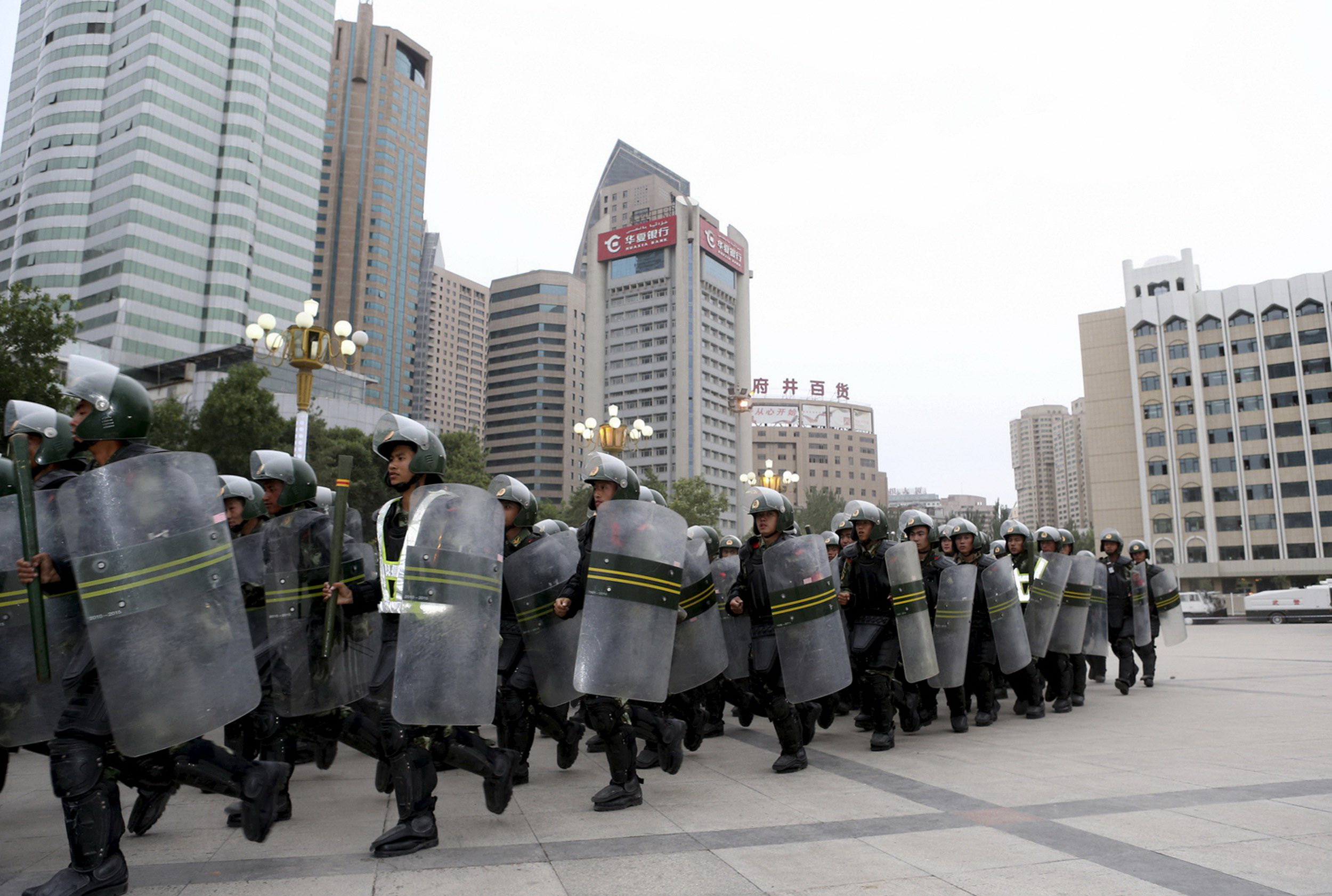A senior ethnic Uighur security official was killed in a police raid on a "nest of terrorists", Chinese state media reported, giving details on a previously unannounced operation in the violence-prone far western region of Xinjiang.
Hundreds of people have been killed in the past few years in the region which is home to the mainly Muslim Uighur people in violence blamed by the government on Islamist militants seeking an independent state called East Turkestan.
The official People's Daily, in a report late on Saturday, named the dead official as Maimaitijiang Tuohuniyazi, a deputy head of public security in Aksu, a vast part of western Xinjiang that borders Kyrgyzstan.
It said domestic security chief Meng Jianzhu, who is currently in Xinjiang's capital Urumqi, offered condolences to Tuohuniyazi's widow, praising him as a brave and selfless man.
"In order to rescue a herder who had been kidnapped by terrorists, he threw himself into the breach, charged into the nest of terrorists and unfortunately heroically sacrificed himself," the paper said, without giving other details.
At least 16 people, including five police officers, were killed in an attack at a colliery in Aksu in September. Chinese security forces later said they had killed 28 "terrorists" involved in that attack.
The newspaper said Meng took part in an award ceremony for those involved in tracking down the coal mine attackers.
Meng said that over the past year, security services had "obvious successes" in cracking down on terrorism, and had succeeded in stopping "more than 98 percent" of terror plots in the planning stage. He gave no details.
China's battle against the violence in Xinjiang has been hampered by poor intelligence in a part of the country where few officials understand the Uighur language or Islam and the government has had difficulty recruiting Uighur operatives, diplomats and experts say.
Meng has previously said the government needed to improve its intelligence gathering and intelligence sharing between different departments it if wanted to better deal with the threat of terrorism, a rare admission of the problems it faces.
Rights groups and exiles say the violence in Xinjiang stems more from widespread Uighur resentment at Chinese controls on their religion and culture rather than the action of a well-organised militant group.
China strongly denies abusing human rights in Xinjiang, and says it is facing a determined campaign from Islamist radicals and separatists.





















































